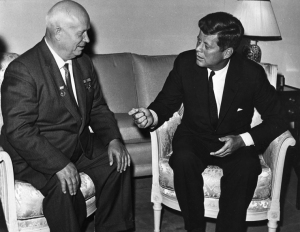
Department of Defense photo (cc) 2009 by Tech. Sgt. Jerry Morrison, U.S. Air Force
Previously published at GBH News.
Like all of us who are old enough, I have vivid memories of Sept. 11, 2001, just as our older brothers and sisters do about the assassination of John F. Kennedy and as our parents and grandparents did about the attack on Pearl Harbor. As others have said over and over again, it was a cool, clear morning, a preview of fall. I was working at The Boston Phoenix, where I covered media and politics. I stepped outside to get coffee and ran into an old acquaintance.
“Isn’t it terrible what happened at the World Trade Center?” she asked.
I didn’t know what she was talking about. I hurried inside. American Airlines Flight 11, which originated at Logan Airport in Boston, had crashed into the North Tower. There was talk of terrorism.
The Phoenix did not have what you would call a well-equipped newsroom. We had a TV that got a handful of channels but no cable. It was obvious what I would be writing about, so I raced to my car and hurried home to the North Shore. I turned on the radio and listened to coverage of the second tower’s collapse just as I was rounding the bend to Route 1. And then I sat down in front of the television set, watching for hour after hour and wondering how I would make sense of it all. Finally, sometime well after midnight, I started to write.
The piece I came up with was headlined “The End of Decadence.” In it, I expressed my hope that the media would finally return to a sense of purpose and seriousness after a decade of wallowing in celebrity culture, the O.J. Simpson trial and the theater-of-the-absurd impeachment of a president over his tawdry sex life.
In fact, the media did change after 9/11, but not for the better. The downward slide didn’t happen immediately. At first, the press diligently covered the aftermath of the attacks. The New York Times ran a wonderful series on the victims called “Portraits of Grief.” Journalists sought to make sense of how security measures aimed at preventing such attacks had so thoroughly broken down. The hunt for Osama bin Laden was covered with great enterprise and courage.
But it wasn’t long before President George W. Bush, a unifying figure in the days immediately after the attacks, began leading the nation in a divisive direction. His uplifting rhetoric about Muslims was offset by the government’s treatment of Muslims as a security risk. He went to war not just in Afghanistan but in Iraq, claiming — falsely, as it turned out — that Saddam Hussein’s regime possessed weapons of mass destruction.
And the media went along for the ride. Few questioned the Bush administration’s claims about Iraq, and few questioned why our incursion into Afghanistan had turned into a full-fledged war to transform a place we didn’t understand into a Western-style democracy. The Times in particular disgraced itself with its credulous, gung-ho coverage, but so did most other news outlets — especially cable news. My late friend Danny Schechter, the “News Dissector,” called it “militainment,” a construction he borrowed from James Poniewozik, then with Time magazine, now with the Times.
Over the next few years, the wars and the Bush White House both lost support, and the media began to fracture into what we see today — a reflection of the polarization that has made it nearly impossible for Democrats and Republicans even to speak to each other. On one side we have the mainstream media, hardly perfect but dedicated to reporting the truth, trusted by about 60% of the country. On the other side we have right-wing propaganda that has convinced 40% of the country that Donald Trump won the 2020 election, vaccines are dangerous and critical race theory is the most serious threat facing us.
Last month, the 20-year misadventure set off by 9/11 was finally brought to an end as the United States pulled its last remaining troops out of Afghanistan. It was a chaotic, ugly finish, and President Joe Biden has received quite a bit of criticism for it. But it does bring a close to the story that began on that clear September day in 2001.
The conclusion of the war in Afghanistan ends an era in journalism as well. Think back to where we were. Fox News was barely a blip on the radar. CNN consisted of straight news rather than opinionated talk shows. There was no Facebook, no Twitter, no broadband. The internet-driven collapse of newspapers was still in the future. In other words, it was a time of consensus in the media and in the culture, at least compared with what was to come.
Over the weekend, Bush was praised for his forthright denunciation of the Trump-inspired domestic terrorists of 2021. “There is little cultural overlap between violent extremists abroad and violent extremists at home,” he said. “But in their disdain for pluralism, in their disregard for human life, in their determination to defile national symbols, they are children of the same foul spirit. And it is our continuing duty to confront them.”
That’s all well and good. But it was Bush, Dick Cheney and Donald Rumsfeld who started us down the road to Jan. 6 with their catastrophic wars, their trampling of civil liberties in this country and their use of torture abroad. And it was a combination of cowardice and gullibility on the part of too many in the media that helped bring us to the crisis of democracy we are dealing with today.



 There’s an interesting
There’s an interesting 



